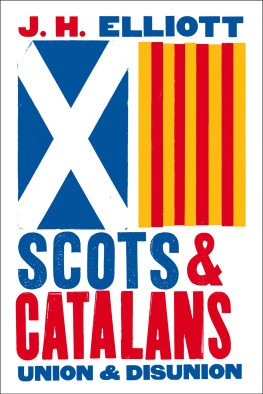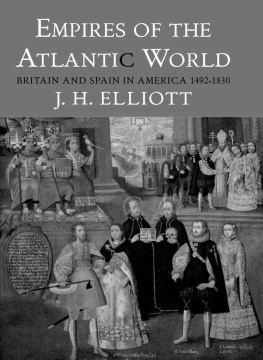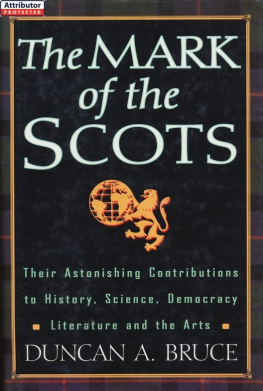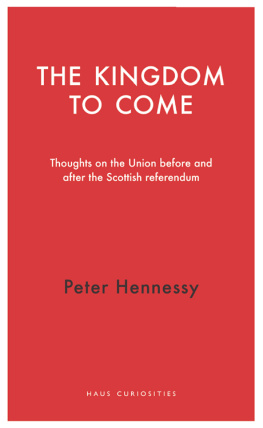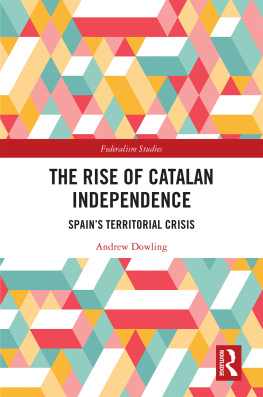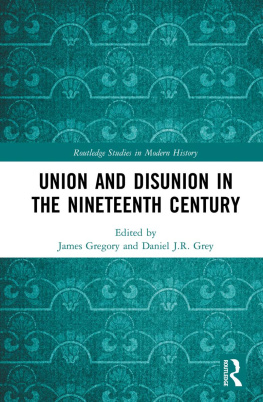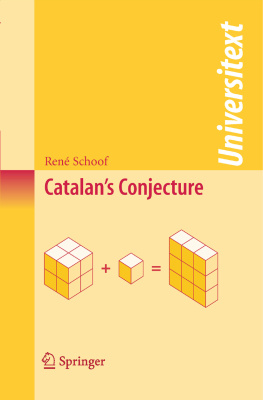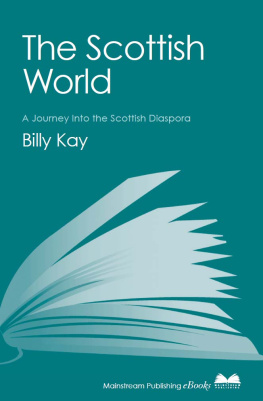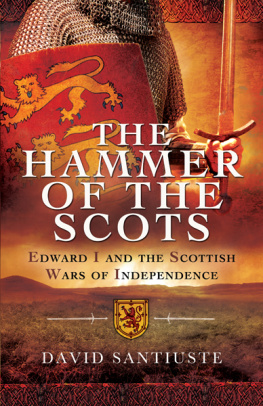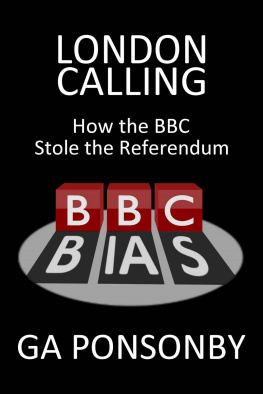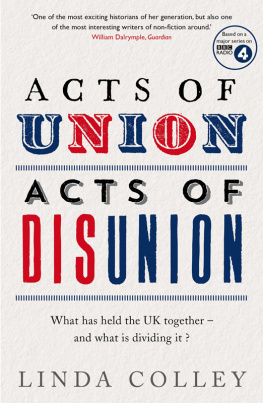John H. Elliott - Scots and catalans: Union and disunion
Here you can read online John H. Elliott - Scots and catalans: Union and disunion full text of the book (entire story) in english for free. Download pdf and epub, get meaning, cover and reviews about this ebook. City: New Haven, year: 2018, publisher: Yale University Press, genre: Art. Description of the work, (preface) as well as reviews are available. Best literature library LitArk.com created for fans of good reading and offers a wide selection of genres:
Romance novel
Science fiction
Adventure
Detective
Science
History
Home and family
Prose
Art
Politics
Computer
Non-fiction
Religion
Business
Children
Humor
Choose a favorite category and find really read worthwhile books. Enjoy immersion in the world of imagination, feel the emotions of the characters or learn something new for yourself, make an fascinating discovery.
- Book:Scots and catalans: Union and disunion
- Author:
- Publisher:Yale University Press
- Genre:
- Year:2018
- City:New Haven
- Rating:5 / 5
- Favourites:Add to favourites
- Your mark:
- 100
- 1
- 2
- 3
- 4
- 5
Scots and catalans: Union and disunion: summary, description and annotation
We offer to read an annotation, description, summary or preface (depends on what the author of the book "Scots and catalans: Union and disunion" wrote himself). If you haven't found the necessary information about the book — write in the comments, we will try to find it.
Scots and catalans: Union and disunion — read online for free the complete book (whole text) full work
Below is the text of the book, divided by pages. System saving the place of the last page read, allows you to conveniently read the book "Scots and catalans: Union and disunion" online for free, without having to search again every time where you left off. Put a bookmark, and you can go to the page where you finished reading at any time.
Font size:
Interval:
Bookmark:
The similarities between Scotland and Catalonia are a modern political shibboleth, but they have been far from historically given. Sir John Elliotts achievement in weaving the two stories together is a masterpiece of comparative and narrative history, one no other living historian could equal. Throughout the book, narrative is combined with multiple levels of explanation perhaps the hardest of all challenges facing the historian. As it approaches the present, the book dramatically recounts the rapid growth of separatism in both countries since 2000, and Elliott identifies as crucial the process of identity construction the selective appropriation of each countrys past to generate a collective identity in which historical victimhood and a promise of a better future have been combined in a manner both mobilising and divisive. Not only a master of narrative, John Elliott is a wonderful writer. Not since David Hume has a historian written English of such unforced elegance, such clarity of mind.
John Robertson, Clare College, Cambridge
Elliotts book is a formidable exercise in comparative history. He skilfully examines the political, demographic, economic and cultural dynamics of Scotland in Britain and Catalonia in Spain throughout the centuries and he unravels the shifting and often tortuous complexity of the subject with the fluidity to which his readers are accustomed.
Xavier Gil, University of Barcelona
The similarities and contrasts between Scotland and Catalonia throw many fundamental aspects of Scottish history into sharp relief. The result is not only a masterful exercise in comparative history. It is also a compelling account of British history from a Scottish perspective, and a superb introduction to Scottish history itself.
Dauvit Broun, University of Glasgow

Copyright 2018 J. H. Elliott
All rights reserved. This book may not be reproduced in whole or in part, in any form (beyond that copying permitted by Sections 107 and 108 of the U.S. Copyright Law and except by reviewers for the public press) without written permission from the publishers.
For information about this and other Yale University Press publications, please contact:
U.S. Office:
Europe Office:
Set in Minion Pro by IDSUK (DataConnection) Ltd
Printed in Great Britain by TJ International, Padstow, Cornwall
Library of Congress Control Number: 2018934510
ISBN 978-0-300-234954 (hbk)
A catalogue record for this book is available from the British Library.
10 9 8 7 6 5 4 3 2 1
CONTENTS
ACKNOWLEDGEMENTS
The distant origins of this book are to be found in the 1950s, when I was fortunate enough to be given the opportunity to undertake some two years of research in Spain. Much of my time was spent in Catalonia, hunting down documents in its central and regional archives for a doctoral dissertation on the origins of the Catalan rebellion of 1640 against the royal government in Madrid, eventually published in 1963 under the title The Revolt of the Catalans. During that time I immersed myself in Catalan life and made many friends with whom I remained in contact, but I moved on to other topics and assumed that my close engagement with Catalan history was at an end. The publication of this book shows that I was mistaken.
It so happened that, at the time when the movement for Scottish independence was gathering momentum, I was casting around for a historical subject that would lead me into new fields. At the same moment separatists in Catalonia were also embarking on a bid for independence. I found myself wondering if there were any parallels between the two movements that might be worth exploring. Among those I consulted was the eminent historian of early modern Scotland, the late Jenny Wormald, who encouraged me to go ahead. I only regret that she is no longer with us to deliver a characteristically forthright verdict on the way the project turned out.
As far as I was concerned, the history of Scotland was unknown territory, and I have learnt a great deal, not only from the historical literature, much of which is of the highest quality, but also from Scottish friends and acquaintances who have done their best to keep me on the right lines and point me in the right direction. Among them are Colin Kidd, who read and made valuable comments on an earlier draft of the book; John Robertson, whose writings have taught me much about the origins and consequences of the Anglo-Scottish Union of 1707; Dauvit Broun and Murray Pittock, both of whom I met at a recent symposium in Edinburgh on Scottish identity; and Robert Frost, who shares my interest in composite monarchies and who has enriched the subject through his deep knowledge of the Polish-Lithuanian version of the genre. I am also grateful to him for welcoming my wife and me on a visit to Aberdeen in August 2015 and taking us on excursions that enabled us to get a sense of the region and acquaint us with some of its most important and picturesque sites. On that same Scottish tour we were welcomed in Glasgow by Hamish Scott and Julia Smith, who again generously devoted their time to driving us to historic houses and sites, including that of the old Scottish coronation ceremony at Scone.
Over and above his kindness to us in Glasgow I am deeply indebted to Hamish Scott for all that he has done to improve my book, even when in the midst of moving house from Glasgow to Oxford. While disclaiming any specialist knowledge of the history of his home country, he has read the entire text, offered many helpful and informed suggestions at every stage of the proceedings, and saved me from many errors. In making his comments he has never allowed me to forget the importance of placing the history of Scotland within the broad context of British and European history. No author could hope to find a more acute unofficial editor.
Catalonia, unlike Scotland, was hardly terra incognita for me. My knowledge of the history of Catalonia, however, as of Spain more generally, tended to peter out at the turn of the nineteenth century. Angel Smith of the University of Leeds, an expert on nineteenth-century Catalan nationalism, kindly read my nineteenth-century chapters and set me right on a number of points. James Amelang of the Autonomous University of Madrid has generously allowed me to take advantage of his unrivalled bibliographical knowledge, while Jon Arrieta Alberdi of the Faculty of Law of the University of the Basque Country has shared with me over the years the fruits of his pioneering researches into Spanish and Basque juridical and institutional history and his explorations into different types of historical union.
I have also done my best to keep abreast of current developments. In doing so, I have gained much from discussions with Spanish friends, including my former Oxford pupil, Cayetana lvarez de Toledo, who provided various opportunities for me to try out my ideas in Spain, both in private and in public, and arranged what proved to be instructive personal encounters in the monastery of Poblet and Barcelonas City Hall. I have also received helpful information and advice over the years from William Chislett of the Instituto Elcano in Madrid; and, during the last few months, from the Madrid correspondent of the New York Times, Raphael Minder. Where I needed advice on constitutional questions I was fortunate to be able to draw on the expertise of Professor Josep M.a Castell Andreu of the University of Barcelonas Faculty of Law.
Above all I had the benefit of expert readings of early drafts of the entire book by Josep M.a Fradera of the University Pompeo Fabra, and Xavier Gil Pujol of the University of Barcelona, who between them cover the history of the last five centuries of Spain and their native Catalonia. Their suggestions and comments not only saved me from many mistakes, but also transformed my text. If I could not follow all their suggestions this is because I did not feel able to expand it any further without unbalancing a book in which there was always a danger of tilting too far away from Scotland. My indebtedness to Xavier Gil has increased still further over recent months as he has commented on successive drafts of revised sections, and brought to bear on them his eagle eye for detail.
Next pageFont size:
Interval:
Bookmark:
Similar books «Scots and catalans: Union and disunion»
Look at similar books to Scots and catalans: Union and disunion. We have selected literature similar in name and meaning in the hope of providing readers with more options to find new, interesting, not yet read works.
Discussion, reviews of the book Scots and catalans: Union and disunion and just readers' own opinions. Leave your comments, write what you think about the work, its meaning or the main characters. Specify what exactly you liked and what you didn't like, and why you think so.

